Filter by
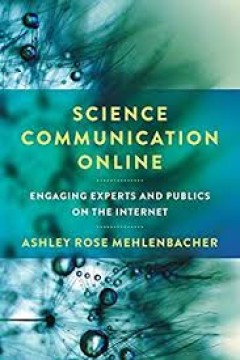
Science Communication Online
As science communication has moved online, a range of important new genres have emerged: crowdfunding proposals, blogs, microblogs, databases, and more. Rhetorics of Science Online takes up these genres to explore how scientists are adapting their communications, how publics are increasingly involved in science, and how boundaries between experts and non-experts continue to erode.
- Edition
- -
- ISBN/ISSN
- 9780814213988
- Collation
- XIII, 175 p.
- Series Title
- -
- Call Number
- 302.23 MEH s
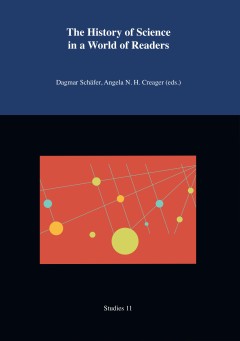
The History of Science in a World of Readers
What role should historians of science, technology, and medicine have in communicating their own body of literature - its methods and concerns - across linguistic boundaries? This anthology is a proactive response to this question. As the West and the East become ever more closely related through travel, trade, and - not least - the globalization of knowledge, the seven essays in this volume sh…
- Edition
- -
- ISBN/ISSN
- 9783945561423
- Collation
- 185 p.
- Series Title
- -
- Call Number
- 500 DAG h
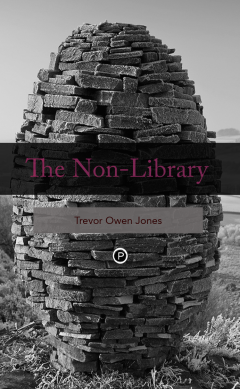
The Non-Library
The Non-Library is a non-standard expression for life that is lived without mediation from words, images, or even ideas. While a thing called “the Library” continues to terrorize humanity even as it enters its last stages as a consequence of cataclysmic climate change and late capitalism, the Non-Library is a strictly performative, ahistorical immanence that suspends the Library’s insiste…
- Edition
- -
- ISBN/ISSN
- 9780615945446
- Collation
- VI, 84 p.
- Series Title
- -
- Call Number
- 027 JON n
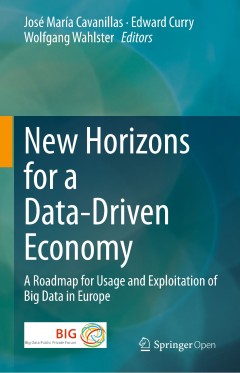
New horizons for a data-driven economy : a roadmap for usage and exploitation…
In this book readers will find technological discussions on the existing and emerging technologies across the different stages of the big data value chain. They will learn about legal aspects of big data, the social impact, and about education needs and requirements. And they will discover the business perspective and how big data technology can be exploited to deliver value within different se…
- Edition
- -
- ISBN/ISSN
- 9783319215693
- Collation
- xx, 303p. : ill.
- Series Title
- -
- Call Number
- 005.7 NEW n
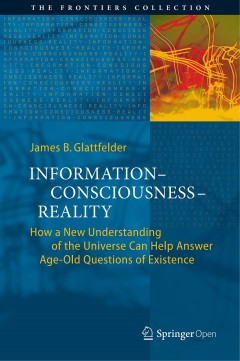
Information—Consciousness—Reality : how a new understanding of the univer…
This open access book chronicles the rise of a new scientific paradigm offering novel insights into the age-old enigmas of existence. Over 300 years ago, the human mind discovered the machine code of reality: mathematics. By utilizing abstract thought systems, humans began to decode the workings of the cosmos. From this understanding, the current scientific paradigm emerged, ultimately discover…
- Edition
- -
- ISBN/ISSN
- 9783030036331
- Collation
- XXIV, 662 p.
- Series Title
- -
- Call Number
- 113 GLA i
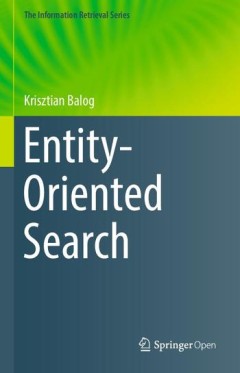
Entity-oriented search
This open access book covers all facets of entity-oriented search—where “search” can be interpreted in the broadest sense of information access—from a unified point of view, and provides a coherent and comprehensive overview of the state of the art. It represents the first synthesis of research in this broad and rapidly developing area. Selected topics are discussed in-depth, the goal…
- Edition
- -
- ISBN/ISSN
- 9783319939353
- Collation
- xix, 351p. : ill.
- Series Title
- -
- Call Number
- 025.04 BAL e
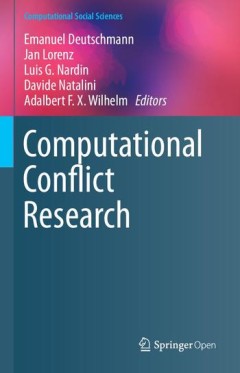
Computational conflict research
This open access book brings together a set of original studies that use cutting-edge computational methods to investigate conflict at various geographic scales and degrees of intensity and violence. Methodologically, this book covers a variety of computational approaches from text mining and machine learning to agent-based modelling and social network analysis. Empirical cases range from migra…
- Edition
- -
- ISBN/ISSN
- 9783030293338
- Collation
- xviii, 264p. : ill
- Series Title
- -
- Call Number
- 300.00285 COM c
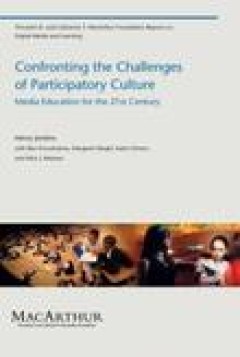
Confronting the challenge of participatory culture: media education for the 2…
Many teens today who use the Internet are actively involved in participatory cultures—joining online communities (Facebook, message boards, game clans), producing creative work in new forms (digital sampling, modding, fan videomaking, fan fiction), working in teams to complete tasks and develop new knowledge (as in Wikipedia), and shaping the flow of media (as in blogging or podcasting). A gr…
- Edition
- -
- ISBN/ISSN
- 9780262513623
- Collation
- xv, 129p.
- Series Title
- -
- Call Number
- 302.23 JEN c

Impact of information society research in the Global South
The second volume in the SIRCA book series investigates the impact of information society initiatives by extending the boundaries of academic research into the realm of practice. Global in scope, it includes contributions and research projects from Asia, Africa and Latin America. The international scholarly community has taken a variety of approaches to question the impact of information societ…
- Edition
- -
- ISBN/ISSN
- 9789812873811
- Collation
- x, 291p. : ill.
- Series Title
- -
- Call Number
- 303.4833 IMP i
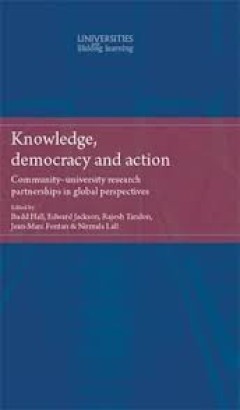
Knowledge, democracy and action : Community-university research partnerships …
Knowledge, democracy and action is based on a three-year international comparative study undertaken by the Global Alliance on Community Based Research and supported by the UNESCO Chair in Community Based Research and Social Responsibility in Higher Education. It provides evidence from twenty case studies around the world on the power and potential of community and higher education based scholar…
- Edition
- -
- ISBN/ISSN
- 9780719089787
- Collation
- -
- Series Title
- -
- Call Number
- 378.103 HAL k
 Computer Science, Information & General Works
Computer Science, Information & General Works  Philosophy & Psychology
Philosophy & Psychology  Religion
Religion  Social Sciences
Social Sciences  Language
Language  Pure Science
Pure Science  Applied Sciences
Applied Sciences  Art & Recreation
Art & Recreation  Literature
Literature  History & Geography
History & Geography